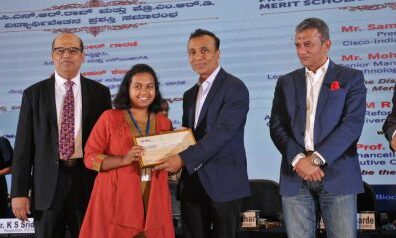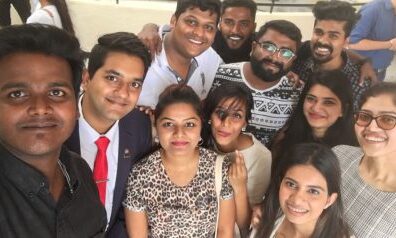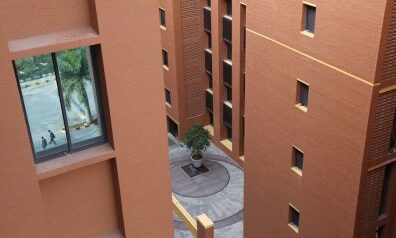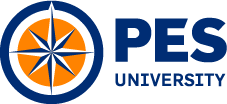| Program Outline MBBS (Bachelor of Medicine, Bachelor of Surgery) | |
| Duration | 4.5 Years + 1 Year of mandatory Internship |
| Affiliation | PES University |
| Campus | PES University Electronic City (EC) Campus |
| Approval Body | UGC, NMC |
| Recognition | NAAC A+ grade |
PES University has been a pioneer in medical education since 2001 with the establishment of the PES Institute of Medical Sciences and Research (PESIMSR) in Kuppam, Andhra Pradesh by our Founder Chairman, Dr. M R Doreswamy. PESIMSR is renowned as the most modern medical college in the Rayalaseema districts of Andhra Pradesh, offering quality education to budding doctors and state-of-the-art healthcare to the local population, as well as to those from bordering districts of Tamil Nadu and Karnataka.
Building on the experience and success of PESIMSR, we launched the PES University Institute of Medical Sciences and Research (PESUIMSR) in Bangalore in 2023. PESUIMSR features a 1000-bed hospital on campus with cutting-edge facilities, alongside a fully equipped medical college. Our institution boasts modern facilities, laboratories, and equipment designed to create a conducive learning environment for our students. PES University is renowned for its strong academic reputation, comprehensive curriculum, and experienced faculty.
PESUIMSR offers ample research opportunities, enabling students to engage in innovative and cutting-edge medical research. Our program provides excellent clinical exposure, with a 650-bed specialty and super-specialty hospital, allowing students to gain hands-on experience from the early stages of their education.
Program Design & Delivery Method
Curriculum Structure
- Pre-clinical Phase: Focuses on foundational sciences such as anatomy, physiology and biochemistry. This phase lays the groundwork for understanding the human body and its functions.
- Para-clinical Phase: Focuses on understanding the diseases causes, progression, diagnosis and treatment. Pharmacology, Microbiology and Pathology are subjects studied.
- Clinical Phase: Involves rotations through various specialties in hospitals and clinics. Students gain practical experience in diagnosing and managing patients under the supervision of experienced physicians.
- Professionalism and Ethics: Integration of training in medical ethics, professionalism, cultural competence, and communication skills throughout the curriculum. Emphasis on ethical decision-making and patient-centered care.
- Integration of Theory and Practice: Emphasis on integrating theoretical knowledge with practical clinical skills from early stages of training. Use of case-based learning, problem-based learning, and simulation exercises to bridge the gap between theory and practice.
- Clinical Skills Training: Dedicated training in clinical skills labs to develop proficiency in techniques such as physical examination, diagnostic procedures, and patient communication. Simulation-based training with simulated patients to practice clinical scenarios in a controlled environment.
- Electives and Specializations: Opportunities for students to explore elective rotations in areas of interest or specialization. Pathways for further specialization in specific medical disciplines based on individual career goals.
- Interdisciplinary Collaboration: Collaboration with professionals from other healthcare disciplines (e.g., nursing, pharmacy, allied health) to promote teamwork and comprehensive patient care.
- Small Group Teaching: Utilization of small group tutorials and seminars to facilitate interactive learning and discussion. Allows for personalized attention and peer-to-peer learning among students.
- Technology Integration: Utilization of technology-enhanced learning resources such as online platforms, virtual learning environments (VLEs), and medical simulation technologies. Access to digital libraries, databases, and medical literature to support research and study.
- Clinical Placements and Supervision: Structured clinical placements in affiliated hospital under supervision of qualified clinicians. Rotation through different departments and specialties to gain exposure to diverse patient populations and medical conditions.
- Assessment Methods: Use of diverse assessment methods including written exams, practical assessments (OSCEs – Objective Structured Clinical Examinations), case presentations, and research projects. Continuous feedback and assessment to monitor student progress and ensure competency.
Key Differentiators of this program at PESU
Academic Excellence: PES University is known for its strong academic reputation with a comprehensive curriculum and experienced faculty members.
State-of-the-art infrastructure: PES Medical College is equipped with modern facilities, laboratories, and equipment to provide a conducive learning environment for students.
Research Opportunities: PES Medical College offers ample research opportunities for students to engage in cutting-edge medical research and innovations.
Clinical Exposure: The college provides excellent clinical exposure for students with 650 bedded speciality and super speciality hospital, allowing hands-on experience from early on.
Student Support Services: PES Medical College prioritizes student support services including counseling, career guidance, and extracurricular activities to ensure overall student development.
Placement Opportunities: The college has a strong network with healthcare organizations, offering promising placement opportunities for graduates in renowned hospitals and institutions.
Artificial Intelligence: Integration of AI in curriculum delivery as well as patient care.
About the Program
The MBBS (Bachelor of Medicine, Bachelor of Surgery) program is designed to equip students with the knowledge, skills, and practical experience necessary to embark on a career in medicine. Here are the highlights of the MBBS program:
Comprehensive Medical
Education: The program covers a wide range of medical subjects, including anatomy, physiology, biochemistry, pharmacology, pathology, and clinical skills, ensuring a strong foundation in medical sciences.
Clinical Training: Emphasis is placed on hands-on clinical training, starting with simulated learning in skill lab and progressing to rotations in various specialties in hospitals and clinics. This prepares students for real-world medical practice.
Professional Development: Students learn professionalism, ethics, communication skills, and teamwork, essential for effective patient care and collaboration within multidisciplinary healthcare teams.
Global Perspective: MBBS program offers exposure to global health issues, healthcare systems worldwide, and opportunities for international electives or exchange programs, broadening students’ perspectives and cultural competence.
Continuing Medical Education: The program instils a commitment to lifelong learning, encouraging graduates to stay updated with advancements in medical science and healthcare delivery through continuing medical education (CME) programs.
Impact on Society: Ultimately, the MBBS program aims to produce competent and compassionate healthcare professionals who are committed to improving health outcomes, promoting health equity, and serving their communities with integrity and dedication.
Career Preparation: Graduates are well-prepared for various career paths in healthcare, including clinical practice, research, public health, academia, administration, and specialized medical fields.
These highlights underscore the rigorous and comprehensive nature of our MBBS program, preparing students to meet the challenges and responsibilities of a career in medicine effectively.
Who should pursue this Program?
Students who are passionate about making a positive impact on healthcare and have a strong desire to serve the community should consider pursuing MBBS @ PESUIMSR. This program is ideally suited for students who are dedicated, compassionate, and have a keen interest in scientific and medical knowledge.
Students who are willing to work hard, demonstrate resilience, and possess excellent problem-solving skills will thrive in this program. Aspiring doctors who are committed to lifelong learning, continuous improvement, and are capable of handling high-pressure situations will find this program rewarding.
Moreover, students who are looking to embark on a challenging yet fulfilling career in the medical field, where they can contribute to society, save lives, and make a real difference in people’s well-being, should strongly consider pursuing MBBS @ PESUIMSR.
Placement Opportunities & Career Assistance
- Dedicated Placement Cell: Assisting students in finding internships and job placements.
- Career Counseling: Providing guidance and support for career planning and development.
- Campus Recruitment: Regular campus recruitment drives with leading hospitals and healthcare organizations.
- Alumni Network: Strong network of alumni to assist with career opportunities and mentorship.
Other Information
- Accreditations and Affiliations: PES University is accredited by NAAC with Grade A+. We have MOU with other universities for student training & research (S-VYASA)
- Research Opportunities: The University encourages research and innovation with dedicated labs and funding for student projects.
- Outreach Programs: Regular health camps and outreach programs to provide medical services to underprivileged communities.
Semester wise Subjects
Semester 1 & Semester 2
1. Anatomy
2. Physiology
3. Biochemistry
Semester 3 Semester 4
1. Pathology
2. Microbiology
3. Pharmacology
Semester 5, Semester 6
1. Community Medicine
2. Forensic Medicine &
3. Toxicology
Semester 7, Semester 8, Semester 9
1. General Medicine
2.General Surgery
3. Obstetrics and Gynaecology
4. Paediatrics
5. Orthopaedics
6. Ophthalmology
7. Otorhinolaryngology (ENT)
Duration: 12 months
University Examination: 1st Professional
Subjects & Teaching Elements
1. Foundation course – 1 week, remaining spread over 6 months.
2. Anatomy, Physiology & Biochemistry, Introduction to Community Medicine, Family Adoption Programme (FAP) through village outreach.
3. Medicine, Humanities.
4. Early Clinical Exposure.
5. Attitude, Ethics, and Communication Module (AETCOM).
Duration: 12 months
University Examination: 2nd Professional
Subjects & Teaching Elements
1. Pathology, Microbiology, Pharmacology.
2. Introduction to clinical subjects.
3. Clinical postings, Family visits for FAP.
4. AETCOM.
Duration: 12 months
University Examination: Final Professional Part 1
Subjects & Teaching Elements
1. Community Medicine, Forensic Medicine and Toxicology, Medicine & allied, Surgery & allied, Paediatrics and Obstetrics & Gynaecology.
2. Family visits for FAP.
3. Clinical postings.
4. AETCOM.
5. Electives – 1 month, 2 blocks, 15 days each.
Duration: 18 months
University Examination: Final Professional Part II
Subjects & Teaching Elements
1. General Medicine, Dermatology, Psychiatry, Respiratory Medicine, Paediatrics, General Surgery, Orthopaedics, Otorhinolaryngology, Ophthalmology, Radiodiagnosis, Anaesthesiology, Obstetrics & Gynaecology.
2. Clinical postings.
3. AETCOM.
Future Career Prospects after completing the Program
Some of the opportunities available for the students after completing their MBBS are as follows
General Practitioner (GP): GPs provide primary healthcare services to patients, diagnosing and treating common medical conditions. They play a crucial role in preventive care and health promotion.
Specialist Doctor: After completing further specialization (e.g., in surgery, medicine, obg, paediatrics, orthopaedics, cardiology, neurology, etc.), doctors can work as specialists, focusing on specific medical conditions or organs.
Medical Researcher: Researchers conduct studies to advance medical knowledge and develop new treatments or therapies. They may work in academic institutions, pharmaceutical companies, or research hospitals.
Public Health Officer: Public health officers work to improve community health by implementing policies, conducting research, and promoting health education programs. They address issues like disease prevention, sanitation, and health equity.
Medical Administrator: Medical administrators manage healthcare facilities, overseeing operations, budgeting, and ensuring quality patient care. They may work in hospitals, clinics, or healthcare organizations.
Academician: Academicians teach and conduct research in medical schools or universities. They educate future doctors, contribute to medical literature, and may specialize in a specific area of medicine.
These career options highlight the diverse opportunities available to MBBS graduates, allowing them to specialize according to their interests and contribute significantly to healthcare delivery and improvement.
Pedagogy Method
- Lectures and Didactic Teaching: Traditional classroom teaching methods.
- Problem-Based Learning (PBL): Engaging students in real-world medical problems to develop critical thinking and problem-solving skills.
- Clinical Skills Training: Practical sessions in simulated and real clinical environments.
- Small Group Teaching: Utilization of small group tutorials and seminars to facilitate interactive learning and discussion.
- Integrated Teaching: Collaboration between different departments to provide a holistic understanding of medical topics.
- Self-Directed Learning: Encouraging students to take responsibility for their own learning through research and study.
Industry/ Corporate Connect
- Internships and Clinical Rotations: Partnerships with various hospitals and healthcare centres for hands-on clinical training.
- Guest Lectures and Workshops: Regular sessions with industry professionals and experts in the medical field.
- Research Collaborations: Opportunities to participate in research projects with corporate partners and healthcare organizations.
Extra-Curricular/ Co-Curricular Activities in the Program
- Dedicated Placement Cell: Assisting students in finding internships and job placements.
- Career Counseling: Providing guidance and support for career planning and development.
- Campus Recruitment: Regular campus recruitment drives with leading hospitals and healthcare organizations.
- Alumni Network: Strong network of alumni to assist with career opportunities and mentorship.
Programme Highlights
Integrated Curriculum: A well-structured CBME curriculum prescribed by NMC that integrates basic medical sciences with clinical training from the early years of study.
Hands-on Clinical Training: Emphasis on practical clinical skills development through rotations in hospitals and clinics, providing real-world patient care experience under supervision.
Interdisciplinary Learning: Opportunities to collaborate with professionals from various healthcare disciplines, fostering teamwork and holistic patient care approaches.
Emphasis on Professionalism: Training in medical ethics, communication skills, and cultural competence to ensure compassionate and respectful patient interactions.
Research and Innovation: Exposure to medical research opportunities, encouraging students to engage in scientific inquiry and contribute to advancements in healthcare.
Global Health Perspective: Understanding of global health challenges, disparities, and diverse healthcare systems, often supplemented by international electives or community outreach programs.
FAQs
Placements
Opportunities in the corporate sector are made available for outgoing students during their final semester for which professional training is imparted. Students are expected to have good academic records to ensure a definite placement
Placements
Opportunities in the corporate sector are made available for outgoing students during their final semester for which professional training is imparted. Students are expected to have good academic records to ensure a definite placement
Attend a Session
We hold regular events for prospective students and parents
Attend a Session
prospective students and parents
Study at PES
Study at PES
Contact Us
Read our FAQs or contact us:
Ring Road Campus /
Electronic City Campus:
080-10-297297
Hanumanthanagar Campus:
+91 80 22429391
Contact Us
Read our FAQs or contact us:
Ring Road Campus /
Electronic City Campus:
080-10-297297
Hanumanthanagar Campus:
+91 80 22429391
You may also be interested in

Giving to PES
The support extended by patrons like you, has been the primary reason for the substantial growth of our institution. Your contribution would greatly assist in making your PES a world-class institution.


Staying in Touch
Join Alumni Network: The PES website supports the alumni network. All a student needs to do is create an account and you can start connecting with our Alumni to access a range of opportunities and benefits.


Discovering our Newsletters
The Student Newsletter is your guide to what’s happening on campus and in the student community. Find out about PES events, leadership, career and the amazing achievements of your fellow PESU students!


